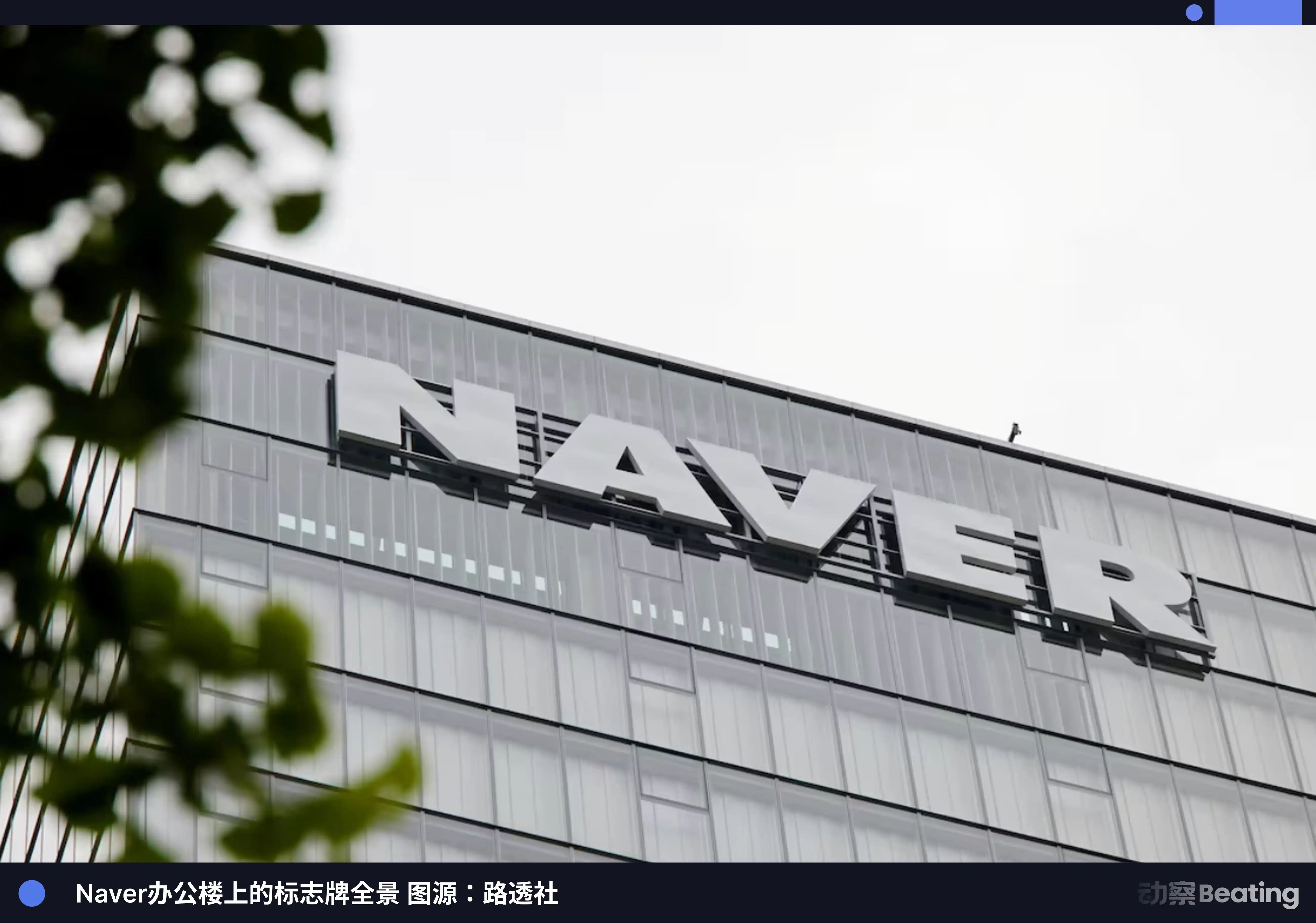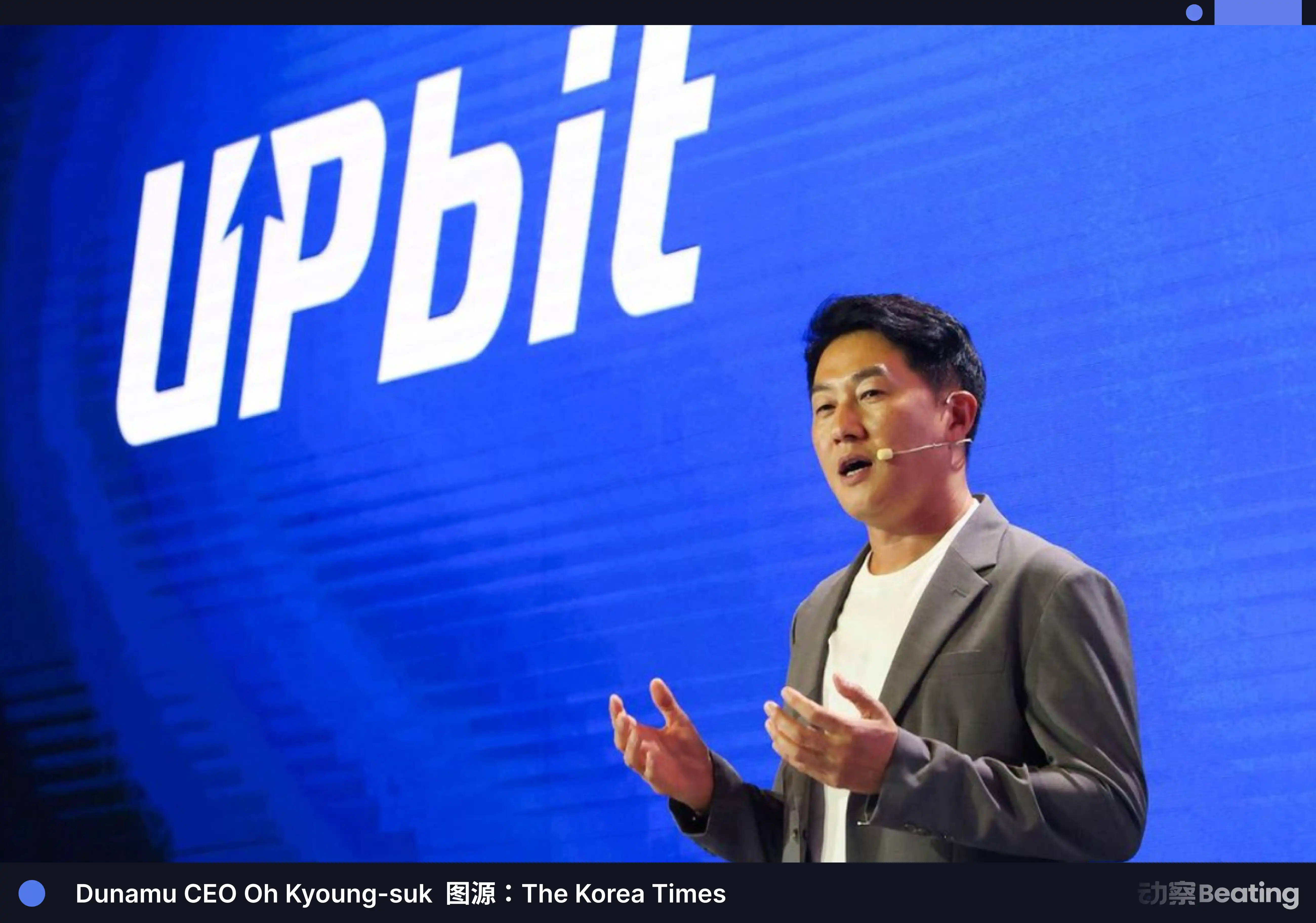Original Title: "Exclusive | In-depth Analysis of Upbit's U.S. Listing: Korea's Largest Cryptocurrency Exchange is More Profitable than Coinbase, Yet Valued at Only 1/7"
Original Author: Lin Wanwan, Dongcha Beating
On November 27, 2025, a "small earthquake" occurred in the South Korean cryptocurrency circle.
As the absolute leader in the South Korean market, Upbit suffered a hacker attack, resulting in the loss of 54 billion Korean won (approximately 36 million USD). Upbit later revised the figure to 44.5 billion Korean won in lost Solana network assets.
However, the market's panic was quickly absorbed.
Because, based on Upbit's quarterly net profit of about 200 million USD, Upbit only needs two weeks to earn back the stolen amount.
Just three days before the theft incident, Upbit's parent company Dunamu announced a "century merger" with South Korea's internet giant Naver Financial, preparing to go public on the U.S. stock market after the merger, with a current valuation of 10.3 billion USD.
Behind this merger are not only South Korea's old and new chaebols but also a super financial group from South Korea going public in the U.S.
In this world, many seemingly isolated "black swan" events, when viewed together, often turn out to be just a speck of dust falling from a massive "gray rhino."
Theft and Merger
First, we must define the nature of the "theft."
36 million USD is a lot of money. But in front of a trading platform, we need to learn to do the math.
According to Dunamu's annual report approved at the annual shareholders' meeting: the annual operating profit is 1.18 trillion Korean won (approximately 800-900 million USD), and the net profit is 983.8 billion Korean won (approximately 700 million USD), a year-on-year increase of 22.2%.
Clearly, the amount stolen is merely equivalent to a mosquito bite for its massive balance sheet.
Currently, the South Korean Financial Services Commission has preliminarily identified the mastermind as North Korea's "Lazarus" group. Officials believe this attack replicated the "permission hijacking" method used six years ago, with hackers suspected of stealing or impersonating administrator accounts to transfer funds, rather than directly hacking the server. South Korean regulatory authorities have urgently entered Upbit's headquarters for on-site investigation.
But it is precisely this mosquito bite that exposes a deeper issue: Upbit has become too big. Big enough for its cash flow to attract hackers, big enough for its existence to make regulators wary.
This is why the "century merger" three days ago seemed so crucial. If the theft showcased Upbit's financial strength, the merger revealed its anxiety and ambition.
According to public information, Naver Financial (the financial branch of Naver) will conduct a comprehensive equity swap with Dunamu (Upbit's parent company).
There is an extremely counterintuitive data comparison here. In terms of operating profit, Upbit is 1.18 trillion won; Naver Financial only has 103.5 billion won.
In other words, Upbit earns ten times what the other party does.

With such a disparity in profitability, why merge?
Logically, this should be a "dimensionality reduction strike" or "acquisition" by Upbit against Naver Financial. But in the world of capital, logic is never about who has more money being the boss.
Thus, this merger is more about the cooperation of South Korean political interest groups. Upbit is offering a declaration of loyalty to the "new political force faction" represented by Naver's backing in exchange for Naver's powerful political protection. Only through this restructuring can they bypass South Korean regulations and directly access the U.S. Nasdaq.
For more details on Upbit's listing, we exclusively interviewed Jason Huang, founder of NDV Dollar Fund, an investor with long-term deep engagement and systematic research in the South Korean crypto trading ecosystem.
NDV is a compliant hedge fund focused on "digital asset stocks + derivatives," known for its stringent risk control with independent custody and auditing. In terms of past performance, NDV's first fund, Fund I, achieved an impressive 275.5% liquidation return rate within two years.
Here is our exclusive interview.
Interview on Upbit's Listing
Dongcha: When does Upbit expect to go public in the U.S.?
Jason: Currently, the merger between Upbit's parent company Dunamu and Naver Financial may be the largest merger in crypto history.
After the merger, based on the typical preparation cycle for U.S. stocks, it is expected to take 8-9 months. If all goes well, ideally, they expect to file for listing in the second half of 2026.
From what I understand, the world's largest top investment banks are competing to be their underwriters, and it is one of the best-performing projects. For example, Kraken just turned a profit in the third quarter of this year, and its valuation has already reached 20 billion USD.
Dongcha: How is Upbit's compliance and listing preparation status?
Jason: Upbit is a very mature and transparent company, essentially equivalent to a "pre-IPO company." It is currently audited by PwC Korea and is one of only five compliant trading platforms in South Korea. Therefore, its level of compliance is comparable to that of Coinbase back in the day.
The company has no preferred shares, only common shares, and its information disclosure is transparent. The listing preparation work is basically complete; they are just waiting for regulatory approval after the merger.
Dongcha: What do you think about Upbit's current valuation of 10.3 billion USD?
Jason: This is clearly a project with a huge discount in the primary market.
Taking Coinbase as a benchmark, its current market value is about 70 billion USD, with a price-to-earnings (PE) ratio of about 30-40 times, while Robinhood's PE even reaches 60-70 times.
In contrast, Upbit's valuation in the primary market is only around 10 billion USD. Even considering the "Korea discount," Upbit is still a very attractive value proposition. Top investment bankers believe this is a multi-billion dollar opportunity.
The South Korean stock market has long had what is known as the "Korea Discount," which refers to the fact that due to geopolitical risks and chaebol governance structures, South Korean companies are generally valued lower than their global counterparts.
However, if Upbit were merely a profitable trading platform, its story's ceiling would be just the next Coinbase. But what is truly more valuable is the merger it has just completed.
The share exchange ratio between Upbit's parent company Dunamu and Naver Financial is approximately 1:2.5. If calculated by market value: Dunamu occupies 3, and Naver Financial occupies 1. After the merger, the CEO of Upbit's parent company will still be the new single largest shareholder.
Dongcha: What does this merger with Naver Financial mean?
Jason: Let's make an analogy.
What is Naver? It is South Korea's Google combined with Amazon.
What is Naver Financial? It is South Korea's "Alipay" or "Google Pay."
So this merger will create an unprecedented financial giant. We can think of it as a "trinity of Coinbase (trading) + Google Pay (payment) + Circle (stablecoin)."
Dongcha: Why mention Circle?
Because the new South Korean government is vigorously promoting a Korean won stablecoin. Referring to Circle's business model of paying substantial revenue to Coinbase as a "protection fee," this process will certainly involve Upbit.
Currently, there is no company in the market that simultaneously holds both "traditional payment licenses" and "crypto trading licenses," with both being national-level applications. This ecological closed-loop valuation logic is no longer a simple PE multiple; it is the multiplicative effect of platform economics, a good business.
If Coinbase is "trading platform + stablecoin collaboration," and Robinhood is "brokerage + crypto entry," then if Upbit completes the merger and issues a Korean won stablecoin in the future, it will resemble a "payment infrastructure + trading platform + native stablecoin" closed loop.
This is also why current investors believe that a valuation of 10.3 billion USD is like "picking up money."

Dongcha: Earlier, you mentioned Coinbase; will Upbit's operating costs be lower than Coinbase's?
Jason: Yes, Upbit's operating costs are only one-tenth of Coinbase's.
Dongcha: Why is there such a large cost difference?
Jason: Coinbase operates in the U.S. and has to compete globally with Robinhood, Binance, Kraken, etc. Therefore, it bears high U.S. labor and compliance costs and is still burning money in competition.
In contrast, Upbit operates in the South Korean market, where competition has basically cleared. As the holder of the world's second-largest spot trading volume, second only to Binance, Upbit is in an absolute monopoly position.
In economics, this is called "excess rent from natural monopoly," where almost every additional income can be directly converted into net profit.
This creates a huge "scissors gap": a giant with a profit margin far exceeding Coinbase, occupying a monopoly position, yet its valuation is only one-seventh of Coinbase's.
Thus, for capital, this obvious value mismatch is an enticing prey. They are betting on one thing: by going public in the U.S., they can fill this huge valuation gap.
Coinbase is in the global U.S. market and must face ongoing competition from Kraken, Robinhood, and others, while competition in the South Korean market has basically cleared, allowing Upbit to maintain its monopoly position. Therefore, every additional income can be converted into profit more efficiently.
Dongcha: If Upbit's valuation is so underestimated, why do some people still want to sell their primary equity?
Jason: Koreans believe that the entire listing cycle cannot be fully controlled, and some may worry that the listing time will drag into a bear market, leading some to hope to cash out at this stage.
Personally, I believe that even in a bear market, a valuation of 10.3 billion USD still offers strong cost-effectiveness.
Dongcha: Many media reports suggest that Masayoshi Son is also promoting this merger?
Jason: "Inaccurate. Masayoshi Son only holds shares in **Naver's parent company; he is not involved in the merger of its subsidiary Naver Financial. It's like the recent reports about Jack Ma buying Ethereum; in fact, he is just a shareholder, and he might not even know he bought Ethereum. Similarly, Masayoshi Son might not even realize he is promoting their largest merger in South Korea, haha."
Dongcha: Finally, let's talk about your views on the crypto market. What do you think about the macro market environment for next year?
Jason: "We are optimistic about next year. A few months ago, we were interviewed and predicted a 30%-50% correction within six months, and the current market has basically occurred; retail investors who needed to exit have already done so, and leverage has been mostly cleared.
As long as the U.S. is in a rate-cutting environment next year, risk assets are unlikely to decline, and the market will see good performance."
Conclusion
Back to the beginning.
While ordinary retail investors are lamenting the loss of 35 million USD by Upbit, real investors are calculating the share exchange ratio and planning the Nasdaq bell-ringing ceremony.
This is a power transfer in South Korean business history.
The merger with Naver reflects this governance structure upgrade. Upbit is shedding the traces of its early wild growth; the future Upbit will no longer be just a place for trading cryptocurrencies but a comprehensive fintech group integrating payment, trading, and stablecoins.
This is not a power game of who controls whom, but a strategic choice made to adapt to the global wave of crypto regulation.
Upbit is becoming a typical example of a non-U.S. crypto industry: regardless of which country's cryptocurrency trading platform, they are all heading towards the same goal, moving from the gray area to the beginning of political cooperation.
免责声明:本文章仅代表作者个人观点,不代表本平台的立场和观点。本文章仅供信息分享,不构成对任何人的任何投资建议。用户与作者之间的任何争议,与本平台无关。如网页中刊载的文章或图片涉及侵权,请提供相关的权利证明和身份证明发送邮件到support@aicoin.com,本平台相关工作人员将会进行核查。




